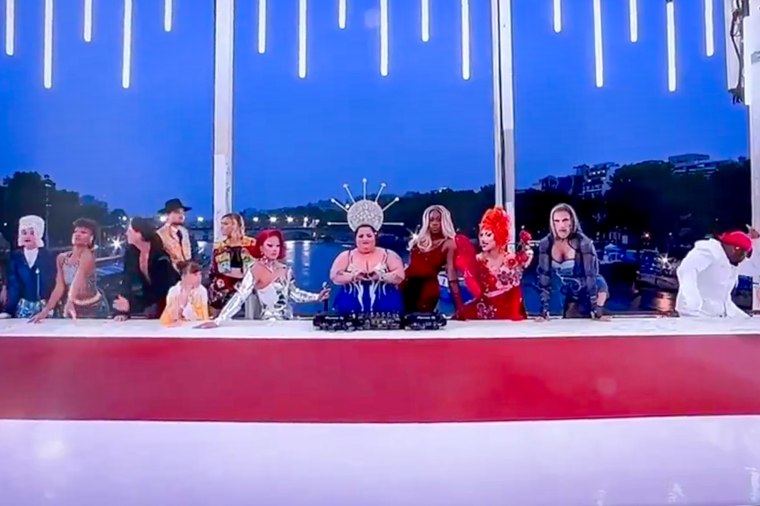Target of ‘Last Supper’ ire at Paris Olympics takes legal action
The French DJ at the center of the storm over an opening ceremony performance at the 2024 Paris Olympics that critics claim mocked “The Last Supper” says she stands by her “artistic choices.”
Meanwhile, Barbara Butch’s lawyer has filed a legal complaint alleging that her client has been threatened online “with death, torture and rape.”
“I take responsibility for everything — including my artistic choices,” Butch said in a letter posted Monday on her Instagram page. “All my life, I’ve refused to be a victim: I won’t shut up.”
Her lawyer, Audrey Msellati, said in a letter posted on the DJ’s Instagram page that Butch has also been the target of “numerous anti-Semitic, homophobic, sexist, and grossophobic insults.”
“She is today filing several complaints against these acts, whether committed by French nationals or foreigners, and intends to prosecute anyone who tries to intimidate her in the future,” Butch’s letter states.
Msellati did not name a specific perpetrator, but the performance Friday has been condemned by everybody from French Catholic bishops and the Russian Foreign Ministry to former President Donald Trump and Elon Musk.
The complaint was filed with the Paris prosecutor’s office, which will decide whether a formal police investigation is warranted, The Associated Press and other media reported.
Butch, who is an icon in the French LGBTQ community and who grew up in Paris in a Jewish family, took part in a drag queen sequence during the opening ceremony on the river Seine that critics said lampooned “The Last Supper,” the iconic painting by Leonardo da Vinci that depicted Jesus Christ with his 12 apostles.
The ceremony’s artistic director, Thomas Jolly, has denied the sequence, called “Festivity,” was inspired by the da Vinci painting. He said the scene was drawn from Greek mythology, specifically an homage to the Greek god Dionysus, and the aim of the tableau was to “talk about diversity.”
“We wanted to include everyone, as simple as that,” Jolly said Saturday at an International Olympic Committee media briefing. “In France, we have freedom of creation, artistic freedom.”
In the scene, Butch was wearing a silver, halo-like crown and sitting at the center of a long table flanked by drag queens who break into song when French actor Philippe Katerine suddenly appears, painted blue and wearing only some strategically placed flowers.

Katerine, in an earlier interview, said he was “proud” of the performance. “It’s my culture,” he said. “We’re full of different people and everyone lives their own way and, above all, has the right to do so. I loved doing it.”
But after the furor erupted, Paris 2024 spokesperson Anne Descamps apologized “if people have taken any offense.”
“Clearly there was never an intention to show disrespect to any religious group,” Descamps said. “On the contrary, I think that Thomas Jolly really tried to celebrate community tolerance. We believe that this ambition was achieved. If people have taken any offense, we are really sorry.”
In the U.S., one of the most vocal critics of the Olympics opening ceremony was Bishop Robert Barron of the Diocese of Winona-Rochester in Minnesota. He suggested the organizers would have thought twice about poking fun at other faiths, like Islam.
“An apology from Ms. Butch would be welcome, but we do not find her refusal to apologize to be surprising,” a spokesperson for Word on Fire, the Catholic media organization founded by Barron, wrote in an email.
But Barron’s group also condemned the bigoted attacks on Butch.
“Mockery and threats against Barbara Butch are reprehensible and if coming from Christians, sinful,” the spokesperson wrote.
Earlier, Bishop Emmanuel Gobillard, a spokesperson representing the Holy See at the Paris Games, told NBC News that what he saw left him “deeply hurt.”
“The fact that our religion should be mocked is usual and we are used to blasphemy in France, but the context isn’t the same,” he said. “In an event that brings together all or part of the population, I found this staging hurtful and out of place.”




